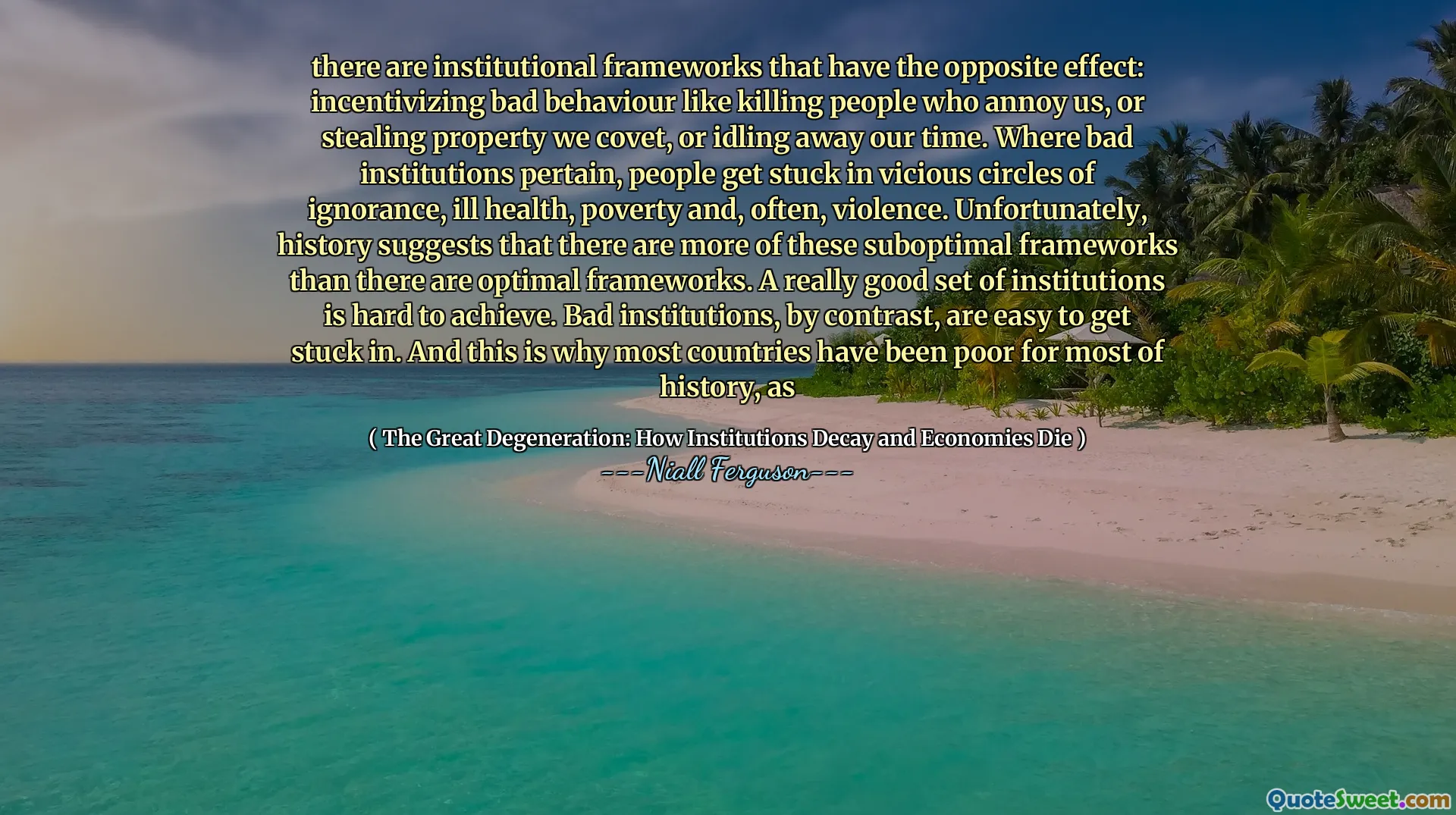
there are institutional frameworks that have the opposite effect: incentivizing bad behaviour like killing people who annoy us, or stealing property we covet, or idling away our time. Where bad institutions pertain, people get stuck in vicious circles of ignorance, ill health, poverty and, often, violence. Unfortunately, history suggests that there are more of these suboptimal frameworks than there are optimal frameworks. A really good set of institutions is hard to achieve. Bad institutions, by contrast, are easy to get stuck in. And this is why most countries have been poor for most of history, as
Niall Ferguson, in "The Great Degeneration: How Institutions Decay and Economies Die," argues that certain institutional frameworks can encourage negative behaviors such as violence and theft. These dysfunctional systems create cycles of ignorance, health issues, and poverty, often leading individuals to resort to desperate actions. This situation can trap societies in a vicious cycle that hinders progress and well-being.
Ferguson points out that while good institutions are challenging to create and sustain, bad institutions are prevalent and easy to fall into. As a result, many countries have struggled with poverty and underdevelopment throughout history. He emphasizes the difficulty in breaking free from these harmful structures, which contribute to widespread societal decay and economic decline.











